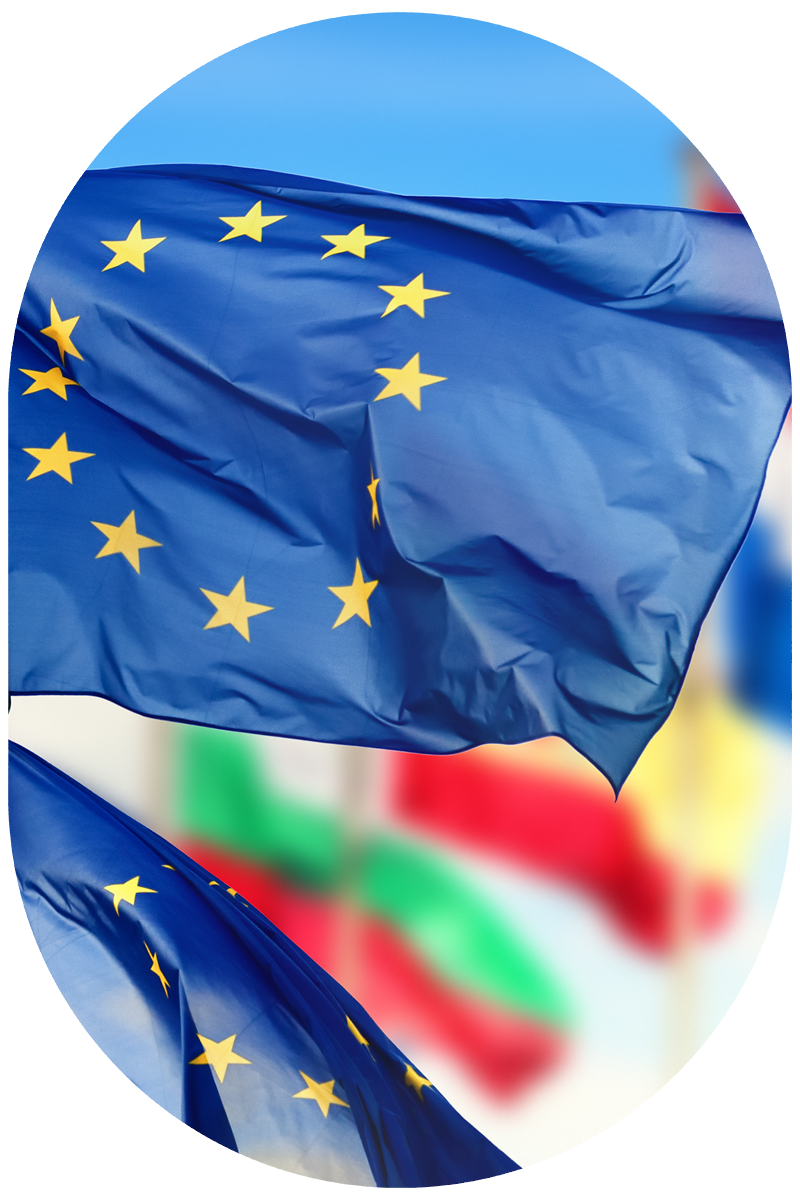CSRD
READY FOR REPORTING?
Many companies will need to report their business travel emissions for the first time in 2025 under the new CSRD directive – is yours ready to do so?
By Lauren Arena (published 24 September 2024)


New legislation is about to bring greenhouse gas emissions and climate risk reporting under the microscope. Chief among them is the EU’s Corporate Sustainability Reporting Directive (CSRD), which entered into force in 2023 and requires companies to disclose non-financial information pertaining to the environmental impact of their activities.
Just 51 per cent of Europe-based travel managers responding to BTN Europe’s 2024 sustainability survey said they would be ready to report on CSRD requirements by January 2025. Ten per cent said they would not be, 28 per cent did not know, and 11 per cent said it was not applicable to them.
A similar poll of 88 buyers attending a Business Travel Show Europe conference session in June found nearly a quarter of respondents (23 per cent) had not heard of, or knew very little about CSRD.
Limited awareness might be OK for the moment, with reporting requirements rolling out in phases, but some companies aren’t taking any chances on potential issues.
“We’re redefining our global travel programme around how best to accommodate CSRD,” says Joel Schneider, sustainability travel specialist for Munich-headquartered global insurance firm Allianz Commercial. “This includes TMC and supplier consolidation and reviewing travel policy that will put us in a position to make us compliant.”
As a large firm whose net income totalled €9.03 billion in 2023, Allianz will be part of the first tranche of companies to which the new CSRD rules apply. Such companies are required to report on climate-related risks and opportunities in January 2025, based on activity from their 2024 financial year. This includes scope 1, 2 and 3 carbon emissions, with business travel falling under the last of these, scope 3.6.
Beyond the disclosure of CO2 emissions data, CSRD also requires companies to outline emissions reductions targets and their plans to meet such targets – prompting action beyond reporting – as well as ensuring all information is externally audited. This includes a double materiality assessment.
“That will be a big piece of the puzzle missing from corporate travel programmes,” said Nadia Crowe, environmental sustainability senior analyst at UK-based IT consultancy firm Aveva, which is currently in the throes of what Crowe calls a ‘pre-assurance’ process.
“Over the last two to three years we’ve worked very closely with the travel team to start implementing policy changes and improve data policy. We’ve also started the assurance process on travel data to be prepared.”
Like Schneider, Crowe’s reporting deadline is fast approaching. Aveva is owned by France-based multinational Schneider Electric, which posted €36 billion in revenues in 2023 and is also among the first cohort of companies set to publish CSRD data in 2025.
The scope of the directive, and the number of companies it will affect, will expand over the next five years so that by 2029 even small- and mid-sized businesses and non-EU companies that generate revenue of more than €150 million in the EU will be required to submit annual reporting.
It is estimated that some 50,000 companies globally will eventually be subject to CSRD, with mandatory disclosure of non-financial data based on the European Sustainability Reporting Standards.
“For some companies, like those in the professionals services sector, the emissions associated with their business travel activity will represent the lion’s share of the company's overall emissions”
Getting the data in order
Business travel, scope 3.6, is a single line item among the more than 1,000 required data points. For some companies, like those in the professionals services sector, the emissions associated with their business travel activity will represent the lion’s share of the company's overall emissions. For other companies, like manufacturing, scope 3.6 is but a drop in the ocean of their overall carbon output.
Regardless, if a company is subject to CSRD, “You need to get a 360-degree view of all of your [carbon] data,” says Kit Aspen, founder of sustainability specialist Thrust Carbon.
Here’s how many companies will need to begin to think about sustainability data as CSRD rules – and emissions reporting regulations in other geographies – come to bear on business travel management.
Pick a methodology: Environmental agencies in the UK, US and France (DEFRA, EPA and ADEME respectively) provide conversion factors that allow companies to calculate their GHG emissions. In Germany, the country’s business travel association, VDR, has developed a standard to calculate business travel emissions. Then there’s the myriad proprietary tools offered by business travel and sustainability specialists and aviation analytics firms.
“There are myriad proprietary emissions methodologies offered by sustainability specialists and aviation analytics firms”
The trickiest element, however, may lie in the fact that the EU hasn’t specified what will be an acceptable calculation methodology. Plus, the legislation will be implemented on a national basis, so according to FCM Consulting global sustainability lead Glenn Thorsen, “you need to use the methodology that your market dictates.”
Thrust’s Aspen, meanwhile, advises travel and sustainability managers to ensure their chosen methodology meets the ISO 14083 standard. Adherence to it is necessary in another proposed piece of environmental legislation, Count Emissions EU, which Aspen says provides “a really good indicator of what the EU is thinking in terms of the quality mark [regulators] want to see.”
Lean on reporting partners: This could be a TMC or a carbon calculation specialist or, if data sources are extensive, a third-party data consolidator or auditor. Since the reporting requirements for some companies are just around the corner, partners at every level are leaning into sustainability.
“Good, reliable data is absolutely critical, because visibility of the CO2e footprint is the first step to better awareness and strategies that lead to reducing travel emissions and their impact on the environment,” says Pippa Ganderton, product director of travel management company ATPI's Halo sutainability solution.
Aspen says auditors or “assurers” can also help define what kind of data you need to be capturing. “There's still a lot of confusion and uncertainty about what’s required and when it's required, so the EU won't crackdown hard in the first few years [of reporting compliance],” he adds
Look beyond TMC data: Aspen says that TMC data doesn't provide the complete picture of a travel programme. A good emissions data strategy, therefore, will have to go outside of that source. “Some [travel] spend may only be coming through expense,” he says, like taxis or other ground transportation. “Another area that is overlooked is leakage. Go through [your] supplier list as a check-box exercise to work out where that data is.”
Ganderton agrees that while a TMC should be the primary source of data, “leakage creates unnecessary complications for sustainability teams ... it can mean many hours of additional manual data inputting or additional costs paid to third parties to bring all the data together.”
Establish a baseline: The implications of CSRD reporting are vast. Beyond reporting and auditing emissions data, companies must also define a CO2 reduction strategy that aligns with the United Nations’ Paris Agreement to limit global warming to 1.5 degrees Celsius and reach net zero by 2050.
“All that takes time,” Aspen cautions. As an initial step, he advises sustainability and travel teams to clearly identify a baseline year from which emissions are first calculated. This, he says, will act as the starting point for building a reduction trajectory as well as net-zero targets. This is also where additional regulation, like the newly introduced Corporate Sustainability Due Diligence Directive (CSDDD) comes into play (see below).
Moving forward, the baseline year for many companies will likely be 2023 (when travel volumes began to recover following the pandemic), however companies that have already established reporting commonly refer to 2019 as their baseline.
Contracting for carbon visibility: Collecting carbon emissions data “needs to become ‘business as usual’ procurement,” said Clarity director of corporate responsibility and sustainability Kirsty Given, speaking at the BTN Group's Business Travel Sustainability Summit in London earlier this year. She urged companies to bake sustainability into their sourcing exercises with all kinds of suppliers, not just TMCs. “Make it part of the contracting and due diligence process … so you have data from the outset,” she said.
Keep it real: Speaking at the same event, Corporate Travel Management head of sustainability Lauren Hook stressed the importance of timing and the frequency of data flows, given that travel data often changes. “We know business travellers have on average two to three changes per itinerary, so it’s really important to focus on actual travel data, not estimates [based on booking data],” she said. The Miles Consultancy president Stuart Donnelly added that spend-based carbon calculations are to be avoided as “they don’t offer visibility into real impact.”
Allianz Commercial’s Schneider has learned all these lessons and more as he consolidated his travel programme to rationalise the data sources required for emissions reporting. But there’s still plenty of streams to pull into the reporting suite.
Currently, he says, CO2 data from air travel is “pretty robust” and that his preferred airline partners “are putting in what we need.” So he’s now focused on understanding “how we disseminate and use that [data],” not just for reporting but also to apply learnings to sourcing and policy decisions. Other data sources aren’t as turnkey. Schneider says calculating car-based CO2 emissions is a “challenge” and currently requires his team to engage ground transport suppliers for “manual collections.”
Moving into 2025, however, Schneider hopes to streamline processes by “bringing all our markets online” with one global booking tool. “We see this as an opportunity to both reduce travel data collection points and enhance its standards/visibility so that we are in a strong position for CSRD,” he says.
Similarly, Aveva’s Crowe says understanding the methodologies used to calculate CO2 emissions data is key to attaining third-party assurance.
“At its core, assurance is about traceability and having [data] sources… it’s natural for there to be missing information and gaps. That’s fine as long as the assumptions are sound and the methodology is recorded,” she says.
Her advice to travel managers and sustainability teams? “Start now. Detail everything.”

Practice makes perfect?
The EU has seemingly prepared for variances in quality and comprehensiveness in the first few years of reporting compliance. The auditing requirement, for example, can be provided with ‘limited’ assurance until 2028. Listed small- and midsized companies also have the possibility to opt out of reporting altogether for the first two years.
A report published in May by the Global Reporting Initiative and in conjunction with CSRD rapporteur and member of the European Parliament Pascal Durand estimates some 11,000 companies headquartered outside the EU could be impacted by CSRD’s reporting obligations, including more than 3,000 in the United States.
The directive states that branches or subsidiaries are responsible for publishing the sustainability report of their controlling company (as in the case of Aveva) and that annual reports should be published in a language accepted by the EU member state where they are registered.
At the time of publication, only a handful of EU member states had enacted CSRD into law – France, Denmark, Finland, Hungary, Ireland, Lithuania, Romania, Slovakia and Sweden; while several others – Italy, Germany, Bulgaria, Czechia, Estonia, Croatia, Cyprus, Latvia, Luxembourg, Poland, the Netherlands, Slovenia and Spain – are in the process of doing so. Additionally, Liechtenstein and Norway, which are members of the European Economic Area, have also adopted a CSRD legislation.
While CSRD will help make climate impact reporting more transparent and comparable, GBTA’s senior vice president, advocacy and sustainability, Delfine Millot, warns regional differences could muddy the waters.
“Regulation [like CSRD] is potentially a good thing for our industry because we are landing on some harmonised language where we can compare performance and risk management approaches between companies,” she said during a recent webinar hosted by Thrust Carbon.
“The difficult thing is that the regulatory effort is being pushed regionally or by individual countries [and] we’re not yet at a point of global harmonisation. Regional fragmentation is real.”
Penalties for noncompliance will also be decided on a national level. In France, for example, fines of up to €18,750 apply for failing to publish a report, along with criminal penalties including prison time and fines of up to €375,000 for not completing or obstructing a third-party audit.
“Regulators need industry input and leadership,” Millot added. “We need to be ready and flexible because over the next few years we’re going to see a bit of experimenting, learning and re-adjusting because no one will get it perfect from the get-go.”
CSRD reporting timeline




2025
Large, listed EU-based companies meeting the following thresholds will be obliged to report on their 2024 emissions data in 2025:
• Balance sheet in excess of €25 million
• And/or net turnover in excess of €50 million
• More than 500 employees
2026
Large EU-based companies exceeding at least two of the following criteria must report their 2025 carbon emissions in 2026:
• €25 million balance sheet total
• €50 million net turnover
• 250 employees
2027
EU-based SMEs must comply in 2027, based on 2026 data, albeit with the possibility to opt-out for the first two years.
2028
Companies based outside the EU must comply in 2029, reporting their 2028 carbon emissions, if they have:
• Net consolidated turnover of more than €150 million in the EU
• Have either a large or listed subsidiary or a European branch with net turnover in excess of €40 million
CSDDD: An obligation to act
The EU in July this year adopted the Corporate Sustainability Due Diligence Directive (CSDDD), which aims to establish a standardised due diligence duty for companies.
Like CSRD, CSDDD will be rolled out in phases (from 2027) and enforced on a national level. The directive will force companies to identify and address the human rights and environmental impacts of their operations as well as their value chain. This obligation includes drafting a transition plan for climate change mitigation aligned with the 2050 climate neutrality objective of the Paris Agreement.
Unlike CSRD, however, CSDDD rules apply only to large companies, both within and beyond the EU. The directive provides supporting and protective measures for SMEs, which could be indirectly affected as business partners in value chains.
“CSRD is saying 'show us the data', but CSDDD is about taking action that will help you show reductions in CO2 emissions,” says GBTA’s Millot. While CSRD isn’t solely a reporting directove, she believes the addition of CSDDD will sharpen focus on operationalising change.
“There’s a real tension and a real struggle with very lean sustainability teams in companies spending a lot of time on tracking, reporting and compliance instead of getting creative about the actions that can be taken to mitigate [climate change],” she says.
“Due to this strong regulatory push, I hope businesses will start resourcing their sustainability teams a bit better, giving them the budget they need to allow everyone to do reporting as well as actual decarbonisation efforts.”








